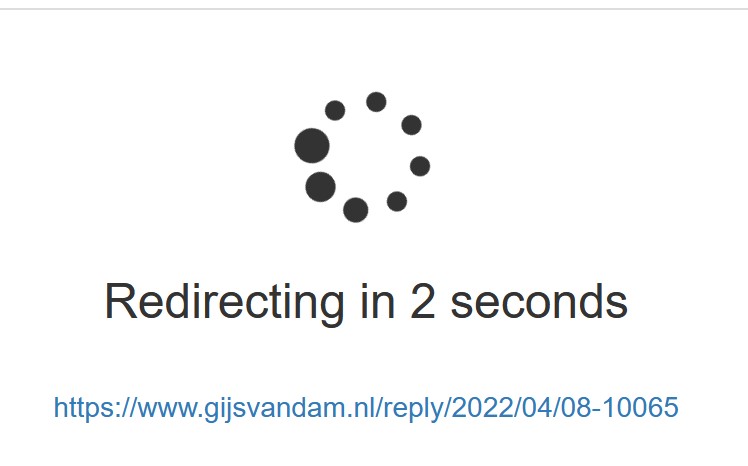I am now working on rerouting payments by nodes in the middle of the route. I think that might potentially be a better (cheaper!) way to disincentivize routing. #lightningnetwork
https://twitter.com/SeverinAlexB/status/1522268266818904065Always nice to see that your research is appreciated.
https://twitter.com/SeverinAlexB/status/1522258472397676545In reply to:
Waarschijnlijk omdat er een Oekraïense infiltrant werkzaam was. (https://www.theverge.com/2022/2/28/22955246/conti-ransomware-russia-ukraine-chat-logs-leaked)
[einde]
In reply to:
- Rusland is voor de Cyber oorlogsvoering deels afhankelijk van hackers collectieven (https://www.mandiant.com/resources/russia-invasion-ukraine-retaliation) Deze collectieven kunnen met relatieve immuniteit in en vanuit Rusland opereren, maar zijn in werkelijkheid transnationale entiteiten...
In reply to:
- De noodzaak voor een Cyber War is minder als je al verwikkeld bent in een fysieke oorlog, zeker voor de offensieve partij. Waarom zou je infrastructuur met een onvoorspelbare cyber attack aanvallen, als je het gewoon kapot kan schieten? (https://spectrum.ieee.org/why-theres-no-real-cyberwar-in-the-ukraine-conflict en https://www.vice.com/en/article/88gbk5/why-we-havent-seen-debilitating-cyberwar-in-ukraine)
In reply to:
- De Cyber War is er wel (https://www.reuters.com/world/europe/exclusive-us-spy-agency-probes-sabotage-satellite-internet-during-russian-2022-03-11/), maar de berichten daarover halen het nieuws niet omdat het ondersneeuwt onder de berichten over raketten op woonwijken en andere oorlogsmisdaden. (https://www.vice.com/en/article/88gbk5/why-we-havent-seen-debilitating-cyberwar-in-ukraine)
In reply to:
This building is still a place of worship, but now as a mosque. Fully engulfed by the city. https://www.google.com/maps/@52.3793665,4.8062837,3a,75y,73.24h,100.65t/data=!3m6!1e1!3m4!1sx0v0TVOh9r7xQZKzHBoOpQ!2e0!7i16384!8i8192?hl=en
Why does signature half aggregation break adaptor signatures?
There is this cool trick you can do with Schnorr signatures. It is called Adaptor Signature (AS). An adaptor signature is an extra signature that, combined with the original signature, allow for revealing a value that was previously hidden. You can use this trick to solve trust problems as they appear in atomic swaps, coin swaps and Discreet Log Contracts (DLCs).
Signature Aggregation (SA) is a way to aggregate multiple signatures into a single signature. The single aggregate signature is smaller (in bytes) than the original signatures combined. It reduces transaction weight, meaning we can have more transactions per block, which is always a good thing. It's like 7zip for transactions. Signature Half Aggregation is a variant of SA that only aggregates half of each signature. It offers less compression, but it has the benefit of not requiring any interaction with the signers, whereas full aggregation does require cooperation of all the signers.
So two cool tricks, but the latter breaks the former when it is used for blockwide signature aggregation. This article explains the math behind it and why SA breaks AS
- Older posts Newer posts

